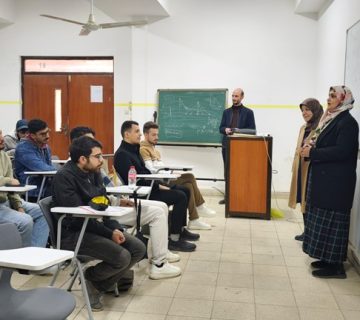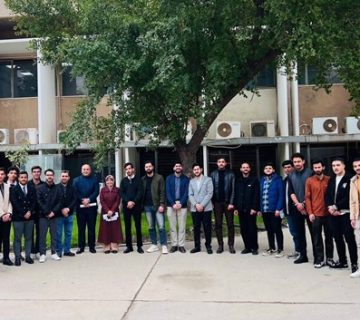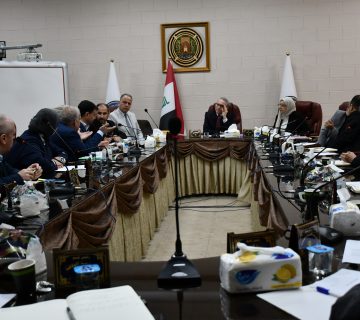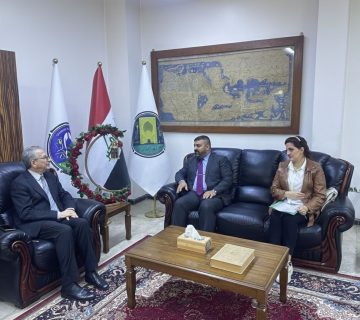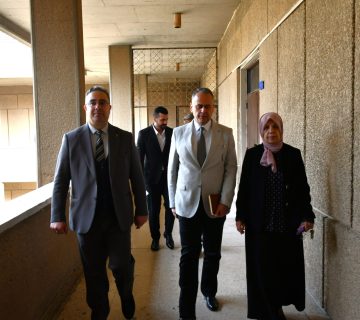Faculty member Assist. Prof. Dr. Hussein Toukan Abdullah in the Department of Mechanical Engineering received a letter of thanks and appreciation from Prof. Dr. Bahaa Ibrahim Insaf, President of the University of Baghdad, for his active and distinguished role in global publication to enhance the ranking of the University of Baghdad among reputable global universities through his published research titled
(Cooling lithium-ion batteries with silicon dioxide-water nanofluid: CFD analysis) published in the journal Renewable and Sustainable Energy Reviews in Q1 classification.
This work introduces a novel cooling system utilizing SiO2-Water Nanofluid and CFD analysis to enhance the thermal management of lithium-ion battery packs with varying silicon dioxide nanoparticle diameters. The results showed that SiO2 nanofluids with smaller nanoparticle diameters had higher average Nusselt numbers at all Reynolds numbers. This is because smaller nanoparticles have a larger surface area, which increases the collision rate of the nanoparticles with the fluid and thus enhances heat transfer. The increase in Nusselt number was found to be 2.8 %, 5.5 %, 11.6 %, and 22.6 % for nanoparticle sizes of 50, 40, 30, and 20 nm, respectively. The results also showed that for all particle sizes, the temperature of cell 4 equaled the inlet temperature at Re = 30,000. This is because cell 4 is located at the first column of the system and is oriented towards the entrance section, which results in a large temperature difference between the cell and the coolant. Cell 4, therefore, experiences a higher heat discharge to the coolant than the other cells. Overall, this study has shown that smaller nanoparticles and higher Reynolds numbers significantly improve the heat exchange capacity of LiB cells. This can lead to improved electrical properties and extended battery cell lifespan.



